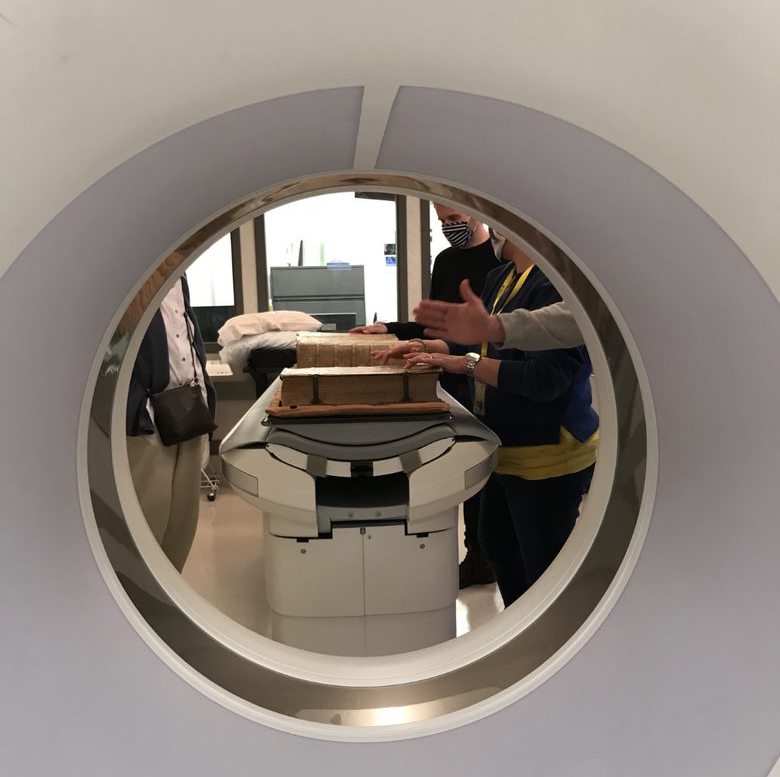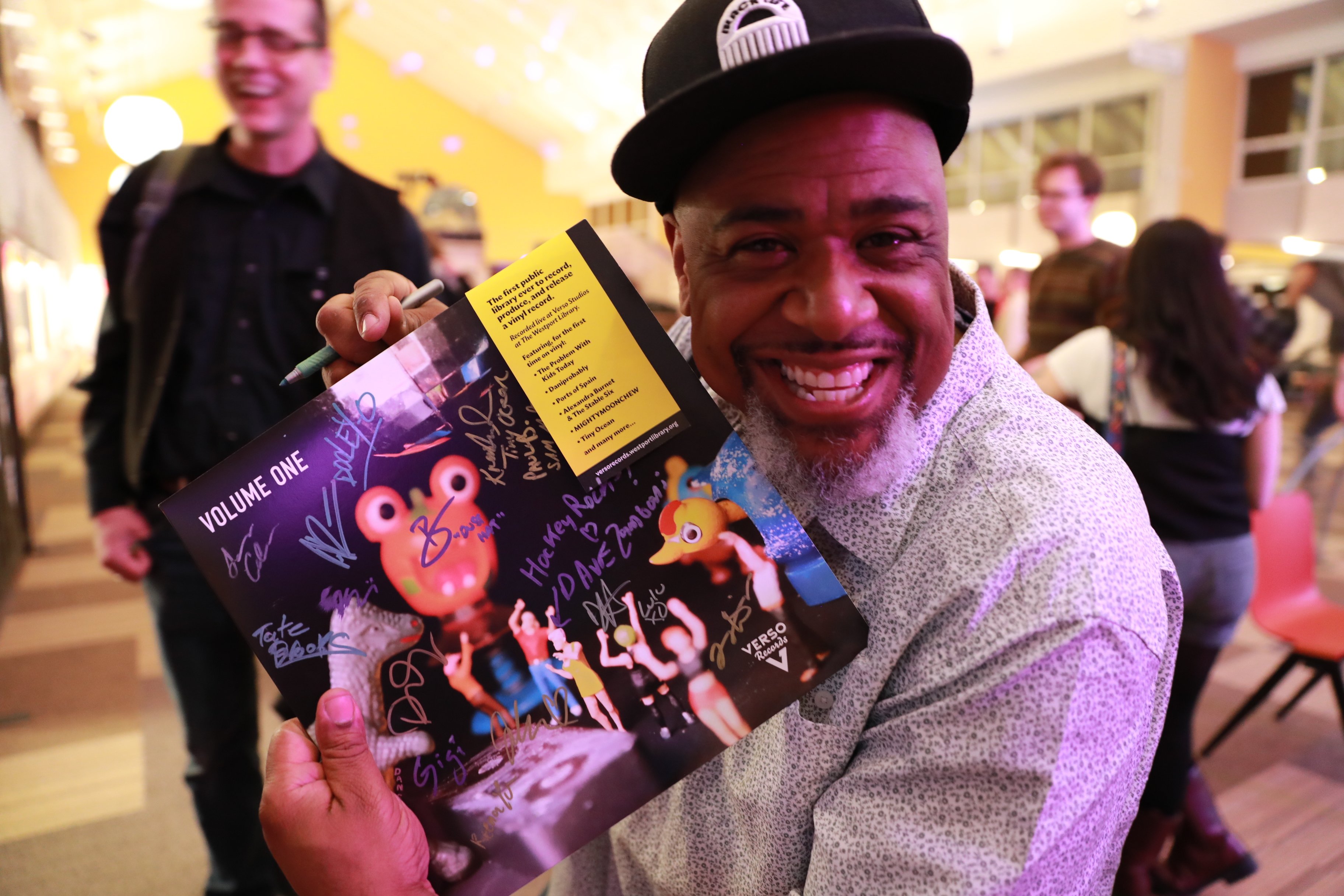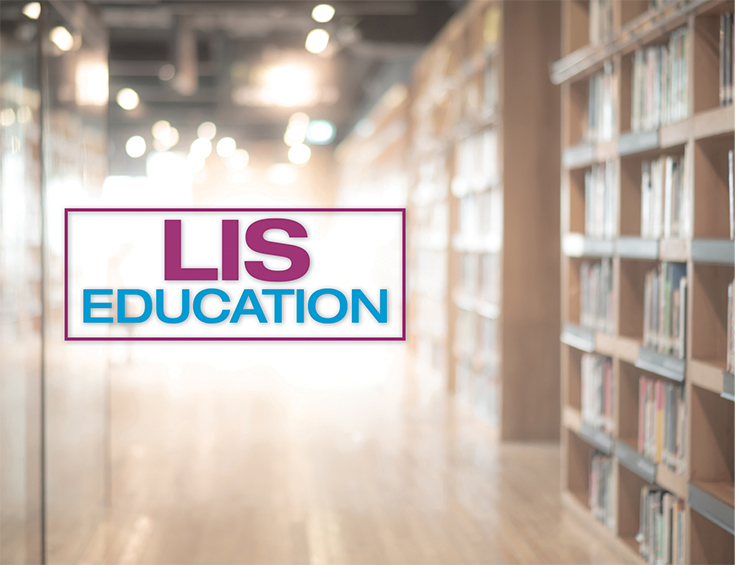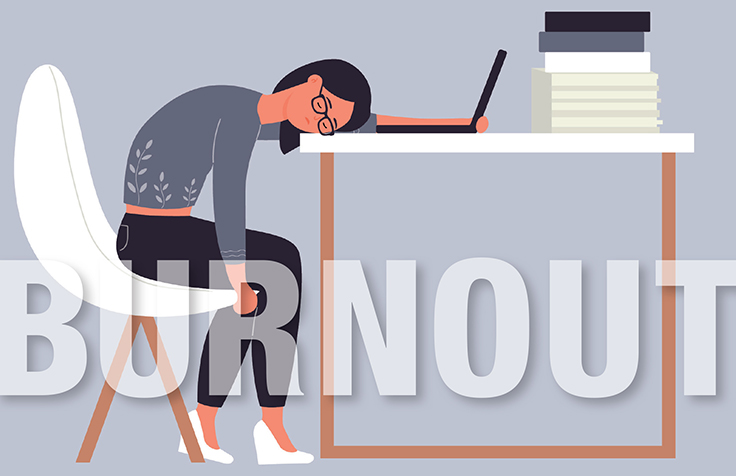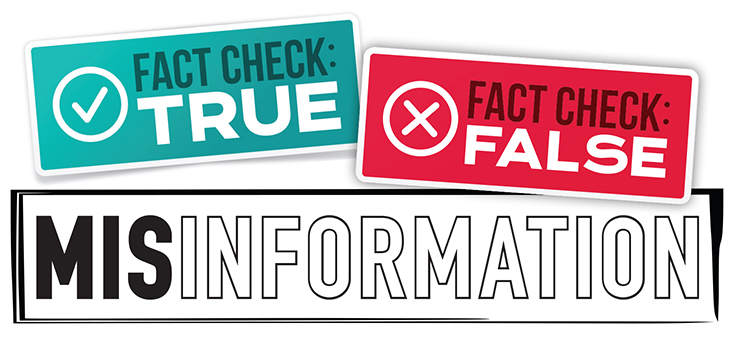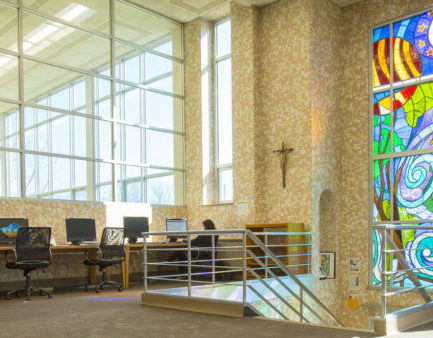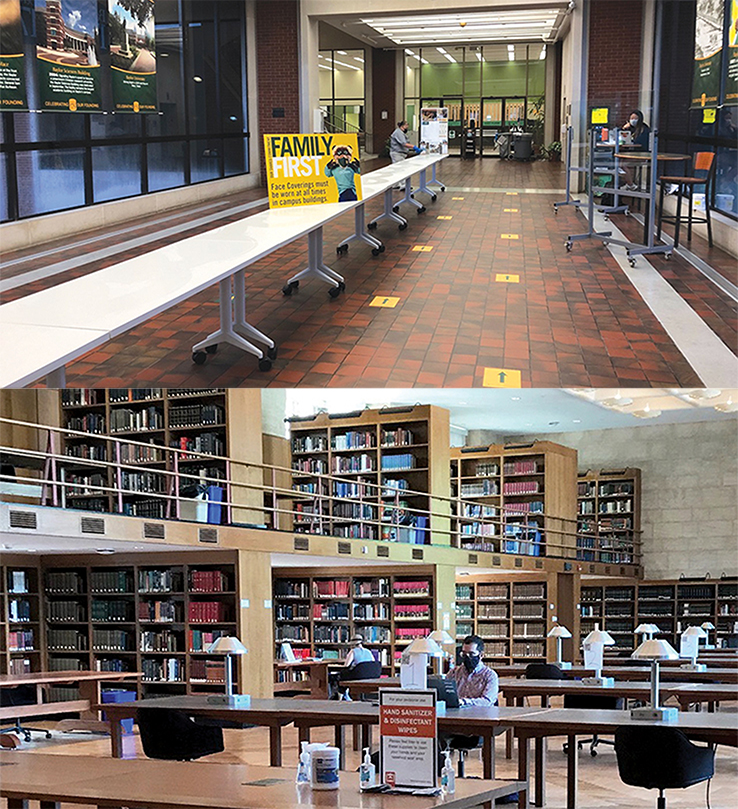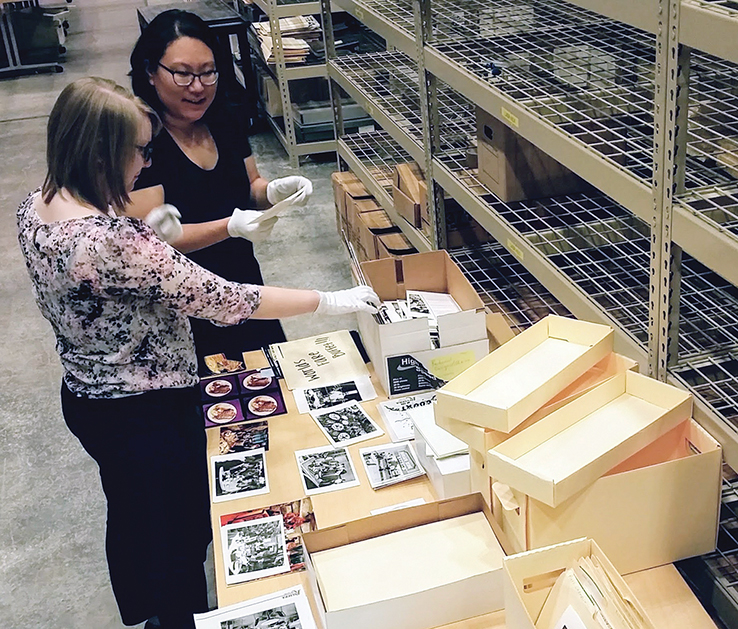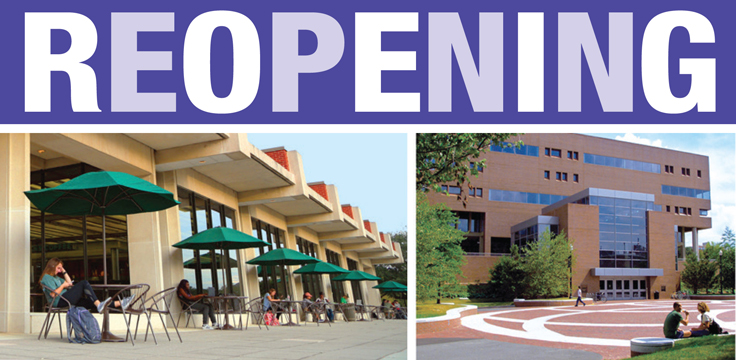Jennifer A. Dixon
38 Articles
From:
To:
University of Iowa Librarians Use Medical Imaging Technology To Reveal Hidden Book Fragments
Often, medieval book bindings—as many as one in five from the 15th and 16th centuries—are reinforced with fragments of pages from older printed volumes that bookbinders considered obsolete. Without the option of dismantling precious books to reveal the fragments, specialists turn to x-ray technology to reveal words that have been hidden from view for hundreds of years. A team at the University of Iowa recently used familiar medical technology—a computerized tomography (CT) scanner—to do just that.
Stacks Records: Westport PL Creates, Records, Releases First Library-Produced Vinyl Album
The Westport Public Library (WPL), CT, recently released Verso Records: Volume One, a 12-song vinyl album—hailed as the first vinyl record entirely recorded, produced, and released by a public library—recorded and produced within the library’s walls. An entirely nonprofit project, all proceeds from sales of the album (available on vinyl or digitally) go to Verso Studios, a state-of-the-art media production hub and venue housed in the library, and to WPL.
After the MLIS
For librarians looking to change career course, post-MLIS certificates can help them learn a new specialization or catch up on technologies.
Feeling the Burnout
Library workers are facing burnout in greater numbers and severity—and grappling with it as a systemic problem.
In the Classroom, In Life: Academic Librarians Combat Misinformation On Campus and Off
Academic librarians have the tools to help students fight misinformation both in their studies and in their daily lives.
In Second Pandemic Wave, College Libraries Again Adjust to Shutdowns
Despite precautionary measures against the coronavirus, such as regular testing and social distancing rules, as a second pandemic wave picks up across the country some schools are opting for an early shut-down of in-person learning. With classes pivoting to all online and residential students being sent home ahead of their Thanksgiving break—or being instructed not to return to campus afterward—academic libraries are once again adjusting to support their communities’ needs.
Equipping First-Year Students for Remote Success
As colleges and universities pivot to remote and hybrid models, their libraries must find new ways to welcome and orient new students.
Find Your Focus: What Kind of Librarian Should You Be?
As the field increasingly expands to include work with a wide range of physical and electronic materials, resources, and data, the question “What is a librarian?” does not have an easy answer. Prerequisites for any librarian job include curiosity and a desire to help expand others’ knowledge. But a satisfying library career may take many forms.
Reopening Libraries: Campus Concerns
The COVID-19 pandemic abruptly shuttered academic libraries across the United States in March, leaving library staff scrambling to continue some semblance of library services. As states have taken steps toward reopening, academic institutions are now looking toward the fall semester and considering how they might safely open their own facilities.
ALREADY A SUBSCRIBER? LOG IN
We are currently offering this content for free. Sign up now to activate your personal profile, where you can save articles for future viewing

